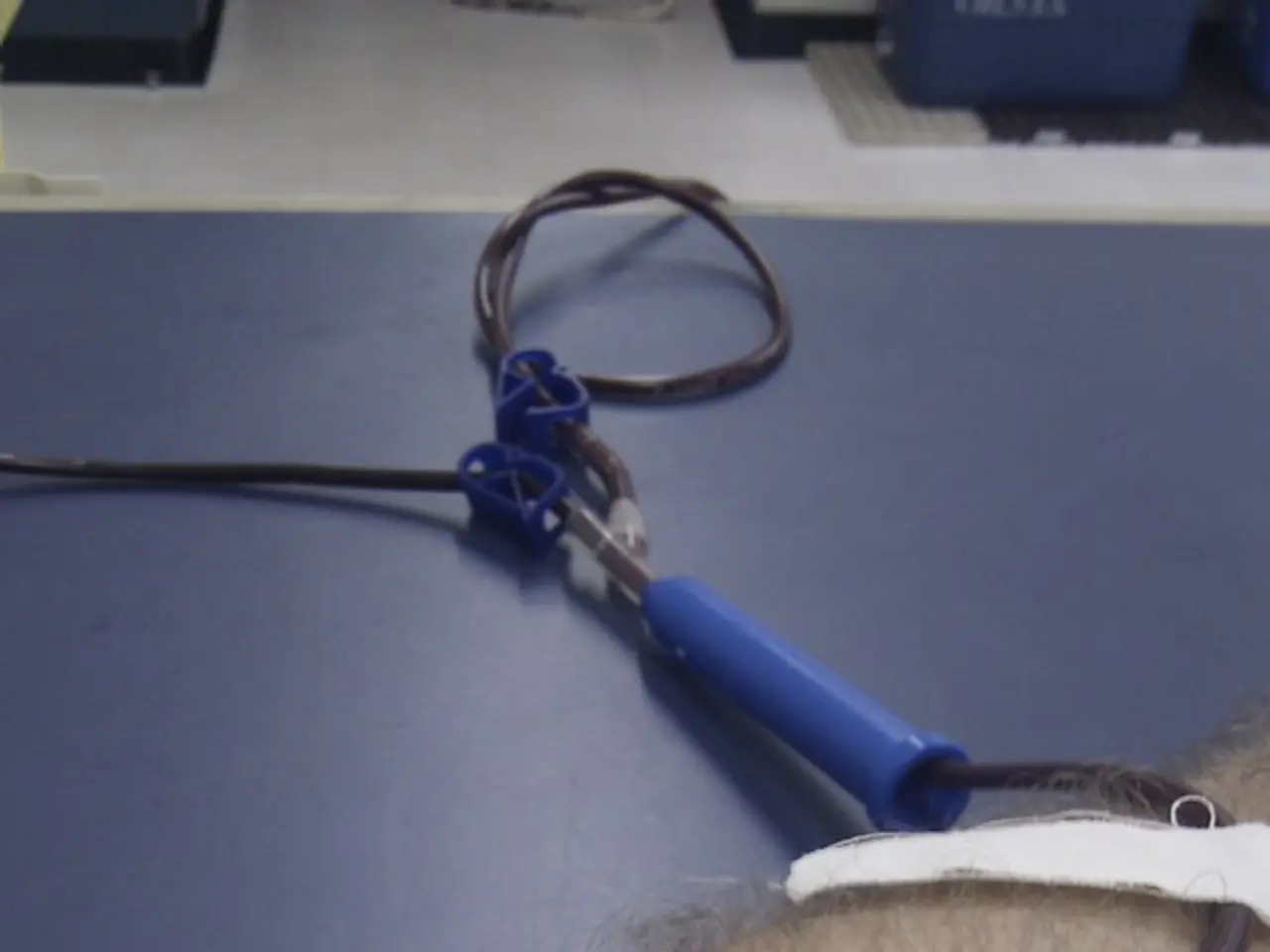Cost, administrative details, proper dosage, potential side effects, and additional information on Berinert
Berinert, a brand-name medication, is commonly used to treat acute attacks of HAE in adults and children. However, alternatives exist for both acute attack treatment and preventive therapy.
Acute Attack Treatments
Ekterly (sebetralstat), recently FDA-approved, is an oral plasma kallikrein inhibitor that offers the convenience of oral administration instead of injections. It quickly relieves symptoms by inhibiting a key enzyme in the swelling process.
Icatibant (Firazyr), a selective bradykinin B2 receptor antagonist, is administered by subcutaneous injection and approved for acute attacks in adults. It blocks the effects of bradykinin, a protein involved in HAE swelling.
Ecallantide and Ruconest (conestat alfa) are plasma kallikrein inhibitors and recombinant C1-inhibitor, respectively, given subcutaneously and intravenously to treat acute attacks, reducing symptoms by interrupting the kallikrein-kinin cascade.
Preventive (Prophylactic) Treatments
Andembry (garadacimab-gxii), a monoclonal antibody, is given as a monthly subcutaneous injection and has shown safety and efficacy in clinical trials. Cinryze, a plasma-derived C1 esterase inhibitor, is used for long-term prophylaxis, given intravenously.
Investigational treatments include antisense oligonucleotides like donidalorsen that reduce prekallikrein production and gene-editing therapies (e.g., NTLA-2002) designed to provide long-term control by targeting key proteins involved in HAE pathophysiology.
While Berinert is a valuable treatment option, it's essential to consider its potential risks. Serious side effects can include worsening of HAE symptoms, blood clots, allergic reactions, and the risk of contracting certain blood diseases such as vCJD. An allergic reaction to Berinert can manifest as skin rash, itchiness, flushing, swelling under the skin, swelling of the tongue, mouth, or throat, or trouble breathing.
Throat swelling and pain can be a side effect of Berinert, which may happen due to worsening of an HAE attack. The typical dosage of Berinert to treat an attack of HAE is 20 IU per kilogram (kg) of body weight, administered by IV infusion at a rate of about 4 mL per minute.
It's not known if Berinert is safe to take during breastfeeding, and Berinert hasn't been specifically studied in people who are pregnant. However, one study looked at information from 20 females who took Berinert to treat HAE attacks while pregnant, and no harmful effects were seen in babies born to the females in this study.
Berinert is only used to treat attacks of HAE, not for prevention. Other drugs may be available to manage HAE, and interested patients should discuss alternatives with their doctor. Symptoms of a blood clot after taking Berinert may include pain, redness, warmth, or swelling in an arm or leg, chest pain, fast heart rate, shortness of breath, weakness or numbness on one side of the body, or slurred speech.
Factors that may increase the risk of blood clots with Berinert include having a serious blood clot in the past, obesity, being unable to move around for long periods of time, or taking birth control pills. Berinert comes as a powder in a single-use vial and is administered by intravenous (IV) infusion to treat HAE attacks.
CSL Behring, the manufacturer of Berinert, offers a program called Berinert Connect for financial and insurance assistance. Berinert is a brand-name prescription medication FDA-approved to treat acute attacks of hereditary angioedema (HAE) in adults and children. It contains the active drug C1 esterase inhibitor (human), a protein found naturally in human blood that helps control swelling in the body. Berinert can be self-administered if a patient has been trained to do so.
In summary, alternatives to Berinert span injectable C1-inhibitors, bradykinin receptor antagonists, plasma kallikrein inhibitors (both injectable and oral), and preventive biologic therapies. The choice among these depends on the clinical scenario, patient preference, and approved indications. The new oral option Ekterly being a major recent advance offering greater ease for acute treatment.
- Genetics play a significant role in understanding HAE, as new gene-editing therapies like NTLA-2002 are being researched to provide long-term control by targeting key proteins.
- In the realm of health-and-wellness, managing medical-conditions such as HAE requires careful consideration of various treatment options, including drugs like Berinert, which is an injectable C1-inhibitor.
- Beyond Berinert, science has developed alternatives for acute attack treatment, such as Icatibant, a subcutaneous injection that blocks the effects of bradykinin, a protein involved in HAE swelling.
- Pharmacy solutions extend beyond Berinert, with Ekterly, a recently FDA-approved oral plasma kallikrein inhibitor, providing the convenience of oral administration for acute HAE attacks.




